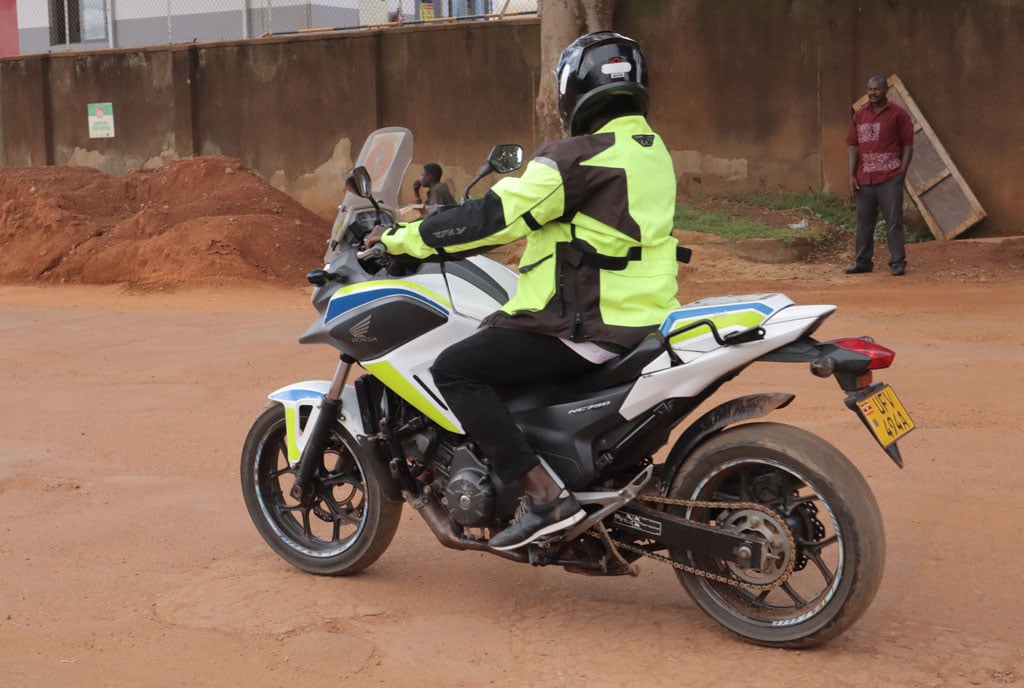
A good place to start is to ensure your safety by investing in a good quality motorcycle. It is generally believed that Japanese motorcycles are the most reliable in the world, and we are lucky to have Ugandan businesspeople who sell them.
Their mechanical attributes are superior and their braking and general handling capabilities are far better than, for instance, brands popular with some boda boda riders.
While choosing a commuter motorcycle, try and stick to one that offers you an upright sitting position because it will handle better in emergencies. A good second-hand motorcycle suitable for a beginner cost between Shs5m and Shs8m, depending on the type and condition. The go-to place for some window shopping is Ndeeba in Lubaga, Kampala.
A brand-new Japanese motorcycle from Honda or Yamaha showrooms in Kampala costs between Shs12m and Shs20m.
Helmet
It is a fact that helmets are crucial to safe motorcycling. They are like seat belts in cars. A lack of one is just irresponsible. A helmet’s capability to keep you safe starts with the visor. The visor improves riding by protecting your eyes from dust, insects and wind and promotes better visibility, especially at high speeds. A helmet without a visor is compromised.
Having said that, a helmet worth its name must withstand any crash without crashing into pieces. Get yourself a good helmet which will cost you between Shs400,000 and Shs1m for a brand new one.
Additionally, Shs250,000 will get you a great second-hand helmet. It is important to note that any brand-new helmet that costs less than Shs100,000 will probably not withstand the pressure that comes with brutal motorcycle crashes.
Gear; jacket, gloves, boots
The first thing about safe riding gear is visibility. Because a motorcycle is so powerful yet so small, it tends to be harder to see riders in emergencies. And wearing luminous clothes reduces the incidence of that happening.
Covering yourself well from head to toe is key if you are going to be commuting on a motorcycle. A good jacket must not only prevent scratches on your body but must also cushion you from hard blows that happen when you hit the ground.
This means that specific parts of the body that are likely to get hit during a fall must be protected by the jacket’s crash padding. A good jacket will have padding on the elbows, the shoulders and the back, and it can cost anything between Shs200,000 for a second-hand one to Shs750,000 for a brand-new one.
Gloves and boots are also very important because they are meant to prevent you from injuries associated with rolling or sliding on the road. A good pair of gloves costs as little as Shs50,000 and riding boots cost between Shs200,000 and Shs1.5m.
Storage
One of the things that will make commuting on a motorcycle easier is storage. First of all, if you are like most working people, you will probably be commuting with your laptop and since the chances of it raining on you are high, having panniers (motorcycle metallic cases) will ensure that your laptop does not get wet.
You will need storage to keep your changing clothes because you are at the mercy of the weather. Here, you can keep your rain suit until you need it instead of wearing it indiscriminately even on a hot day.
Most bikes will not come with saddle bags or panniers so you have to buy them aftermarket. Good aluminium panniers cost an arm and a leg but there are cheaper (below (Shs500,000) options that do the job.
Maintenance
Riding every day, even if you are doing a 20km round trip puts a lot of wear and tear on your motorcycle. This is why the motorcycle must be kept in great condition. One of the ways I maintain my bike is by washing it myself because this way, I get to inspect it. I see which nut is loose, oil leaks and such other things before it is too late.
Whatever you do, get time to inspect every curve of your bike regularly. Checking on the fluids of the bike falls under this area too. For example, brake fluid, radiator coolant and engine oil must always be checked. Every noise must be investigated.
Most importantly, always be present when your mechanic is working on your motorcycle. You will be shocked by how easy it is to fix some of the things yourself, which will come in handy when you are stuck on a deserted stretch of road.
Of course, having a complete toolbox with you at all times is a great advantage.
Tips for a successful commute
Plan and test your commuting route on off-days. Look for motorcycle-friendly roads and familiarise yourself with any potential traffic bottlenecks or construction areas.
Be weather-prepared: Invest in good-quality waterproof gear for rainy days and consider using cooling vests during hot weather. If needed, bring an extra set of clothes and even shoes that you can change into once you arrive.
Practice defensive riding: Always assume that other drivers might not see you on the road. Practice defensive riding by staying alert, maintaining a safe following distance, and anticipating potential hazards.
Stay visible: Use your motorcycle’s headlights and wear bright, reflective clothing to enhance your visibility.
Be prepared with other transit: There will be times when riding your motorcycle is not feasible or safe. Stay up to date with route closures and have a backup plan in mind.
Additional information source: www.helibars.com

